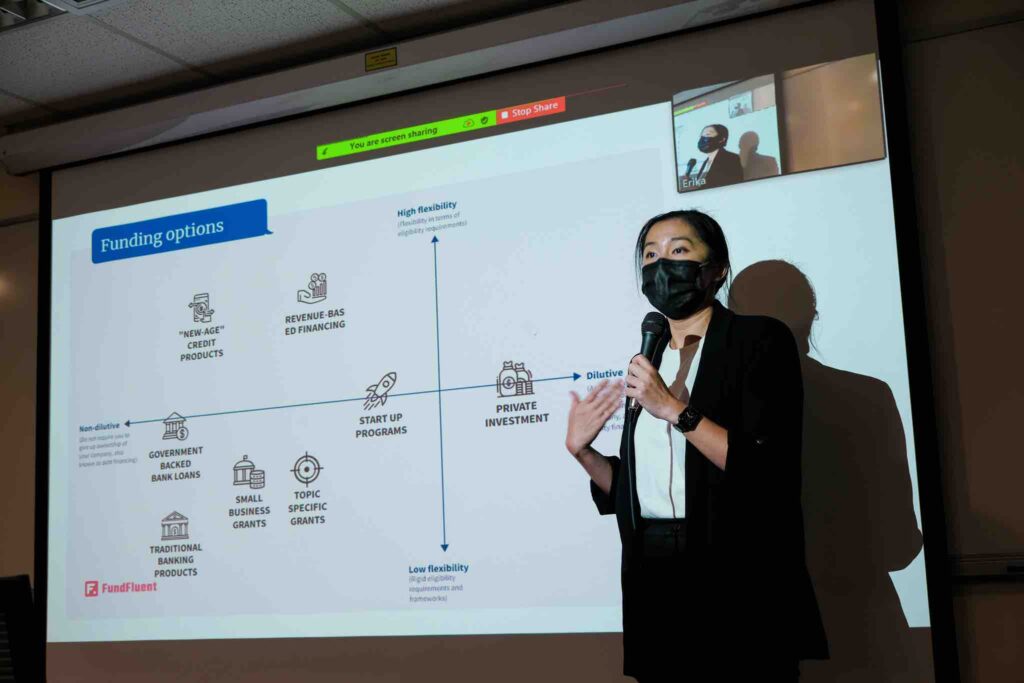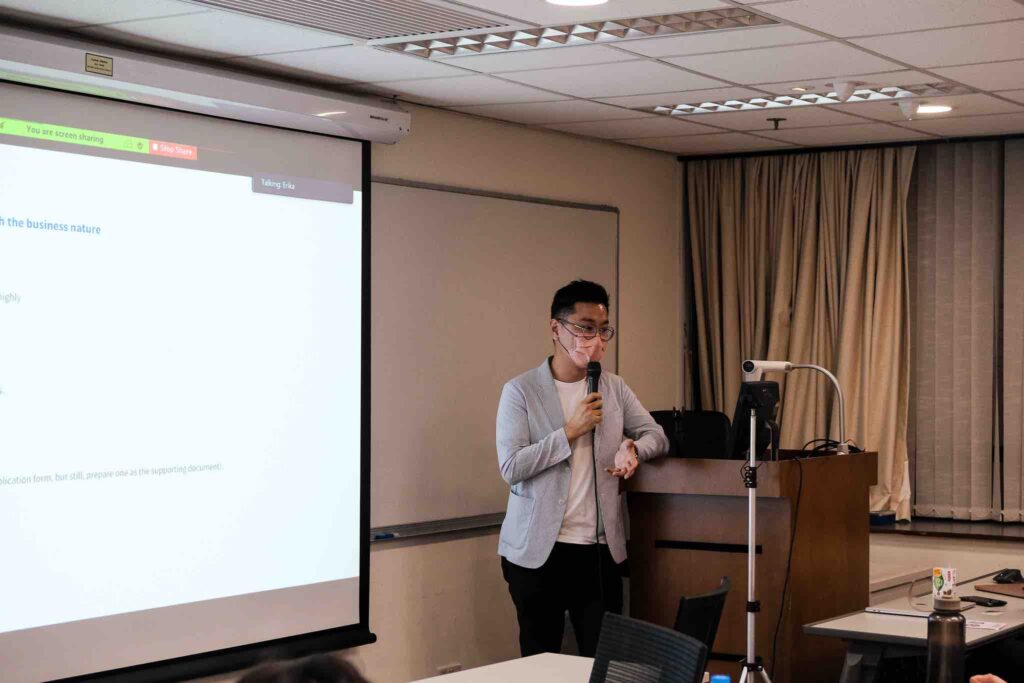What are the funding challenges commonly faced by ethnically diverse entrepreneurs at various stages of their companies’ growth? And what are the funding opportunities available?
At our ideation workshop last week, our mentees cited funding as a common challenge. This week, they met again for our workshop on funding and financing opportunities, facilitated by Jenny Au, Co-founder and CEO, and Wilson Tai, Co-founder and Chief Data and Operations Office, at FundFluent.
Funding Options Available to Small Businesses
The FundFluent team started off by explaining the four main nature of funding opportunities: dilutive (when accessing funding requires you to give up partial ownership of your company) and non-dilutive, and high flexibility and low flexibility (in terms of eligibility requirements).
They then walked our mentees through eight different small business funding options (e.g., traditional banking products, small business grants, topic-specific grants, startup programs, private investment etc.), and explained each of their grant size and level of assessment criteria.
Of course, one of the best ways to retain knowledge is to practice what you have learned! After familiarizing themselves with the various funding options, our mentees began a discussion on the common struggles they all experience when developing a robust funding strategy. Amongst the top challenges are finding a lump-sum investment for their start-up business, and the timing to invite external investors in order to sustain growth.

Eligibility and Getting Ready to be ‘Fundable’
According to FundFluent, building a flexible funding strategy is only the first step. Entrepreneurs also need to make sure that their companies are ready to be funded. Here, Jenny and Wilson offered a few practical tips:
- Having a company chop that matches the registered name of the company
- Keeping track of bank statement entries
- Keeping record of employee documentations such as MPF payments
For example, to become an eligible funding applicant, startup programs would typically require entrepreneurs to submit or demonstrate:
- A Pitch Deck or Business Proposal to communicate the full scope and vision of the company or project
- Team Credentials to showcase the experience and evidence of an ability to execute together as a team
- A Viable Business Model that is backed with data and a go-to-market strategy that shows scalability
- Innovative Technology that demonstrates innovativeness and creative adoptions of technology to solve the problem identified.

Meeting the Requirements of Different Funding Opportunities
The next step for entrepreneurs, then, is to meet the requirements of different funding opportunities suitable for their businesses. The question is, how?
Essentially, said Jenny, getting funding is rooted in storytelling, both quantitatively and qualitatively, about the business.
On the aspect of qualitatively telling the story of their business, our mentees learned the importance of highlighting their business model’s strategic advantages as opposed to their competitors’. For example, how do their team and solutions put the company or organization in a unique position to tackle a problem effectively and efficiently?
While stories give a company’s or organization’s work a human touch, they only go so far when it comes to convincing potential funders. Highlighting the need to back up the stories with quantitative data, Wilson recommended entrepreneurs to find an easy and low-maintenance way to share revenue data with lenders, if they are applying for business loans.
Our mentees also learned more about the administrative issues they need to pay attention to, as well as details in their documents and bank statements that could give them a competitive edge when applying for government grants.
Before wrapping up the workshop, the FundFluent team elaborated on the actionable steps for entrepreneurs to become more ‘fundable’ at different stages of their companies’ growth.
We would like to thank FundFluent again for this informational session! We hope our mentees will be able to take the learnings from the workshop, to build a flexible funding strategy conducive to the sustainable growth of their companies or organizations.
To quote Jenny, a large part of getting funding is good storytelling. And that’s what our mentees will be learning at our next workshop, on October 14, on How to Pitch Your Business. Stay tuned for the highlights of the workshop!

*Interested in supporting our work on helping ethnically diverse entrepreneurs start and scale their business? Donate to us or get in touch with us on cbs@shared-impact.com!




